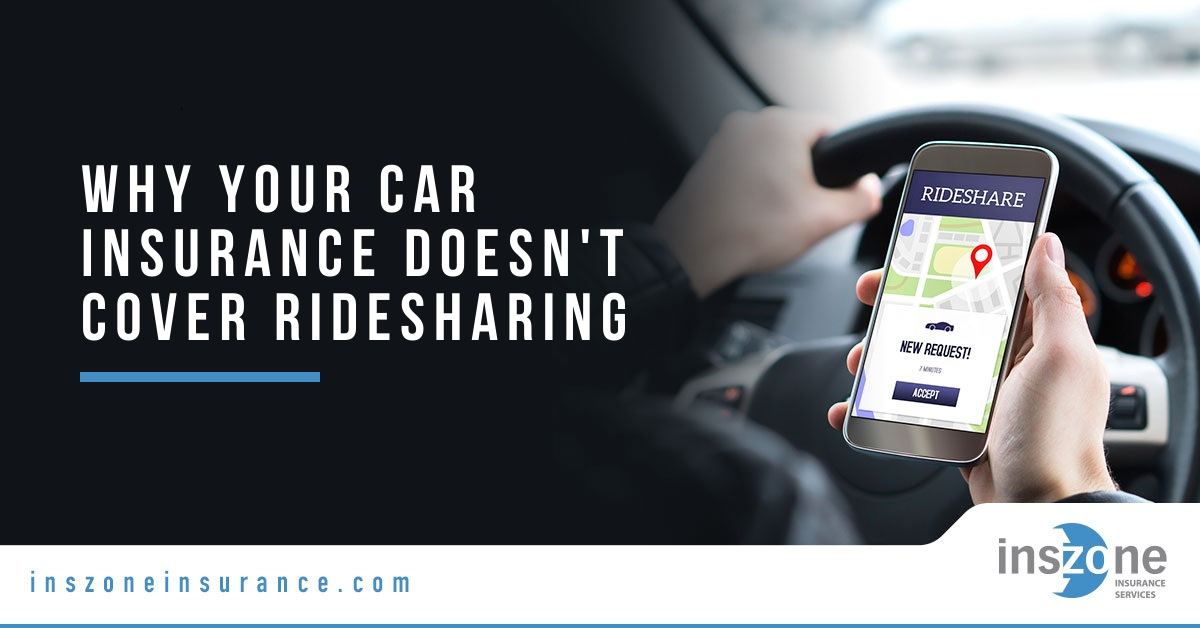Standard auto insurance policies don’t offer coverage to handle ridesharing accidents, in fact a standard auto policy will specifically exclude coverage.
A common policy limit purchased on a standard policy is $50k/$100k/$50k. That means you get $50,000 per person injury liability, $100,000 per accident injury at max, and $50,000 in property damage coverage. It’s possible to purchase more coverage, of course, but regardless of your coverage limit there must be a specifically added Rideshare Endorsement to provide coverage for an accident.
Normally, it is recommended to purchase a higher limit of liability along with the Rideshare Endorsement as you’ll frequently face lawsuits from any passenger injured in an accident while you are providing ride services. These limits apply to everyone who is injured in an accident, the other party/vehicle and your passengers. Frequently, there is not enough coverage to handle both.
Furthermore, standard personal auto insurance policies also specifically exclude the car from coverage at times when it’s being used for business purposes. Using your vehicle as a taxi definitely qualifies.
What You Need to Know About Ridesharing and Car Insurance
You may be thinking, “no problem, Uber and Lyft offer me insurance when I’m working.”
Not so fast.
The coverage they offer is mainly to protect passengers and other drivers, and the amount of coverage you receive varies wildly depending on what you’re doing at the time of the accident.
If the app is on and you’re waiting for a ride request, then you generally have a 50/100/25 third-party liability policy.
If the app is on and you are on your way to pick up a passenger, you generally have $1 million in third-party liability coverage, an uninsured/underinsured bodily injury coverage for yourself, and a very small comprehensive and collision coverage that can help you replace your car…with a very large deductible ($1000 for Uber, $2,500 for Lyft). The same is true if the app is on, you’ve picked up a passenger, and you’re traveling to that passenger’s destination.
What if something’s gone wrong with the app, even though you were working in good faith? Uber and Lyft will probably deny your claim, and leave you with the personal injury bill in the event you’re found to be the negligent party in an accident.
The other driver’s insurance policy will of course cover you if they are the at-fault party, but if they’re underinsured or uninsured you may have very little recourse.
Enter ridesharing insurance: the commercial auto policy add-on that can cover you whether you’re working or driving for personal reasons.
How Your Insurance Must Charge for Ridesharing
Insurance companies use four separate periods when ridesharing, much like Uber and Lyft do: the time when you’re driving for personal reasons, the time when you’re waiting for rideshare requests, the time when you’re driving to the pick-up point, and the time when you’re transporting passengers.
All rideshare insurances are not created equally. Some companies cover all four periods as soon as you purchase the rideshare coverage. Some only offer “gap” coverage that’s meant to work with your Uber or Lyft policy. Some won’t cover periods where you’re either driving to the pick-up point or picking up passengers.
Almost all ridesharing insurance providers offer the policy as an add-on to their existing auto policies, or combine them as a hybrid, which means you’ll use the same company for both. Often, customers are pleasantly surprised to find it costs less than they think to upgrade their policies this way.
Choosing the Right Insurance Policy for Ridesharing
Work closely with your insurance agent to choose the policy that’s right for you. You’ll need to balance your budget with the amount of coverage you’re willing to purchase and the risks you’re willing to take.
Working with an independent insurance agency like ours means getting access to multiple policies and the ability to compare coverages with the help of an expert. It’s a straightforward, hassle-free process. We can help you protect yourself as you pursue your work with Uber or Lyft.





